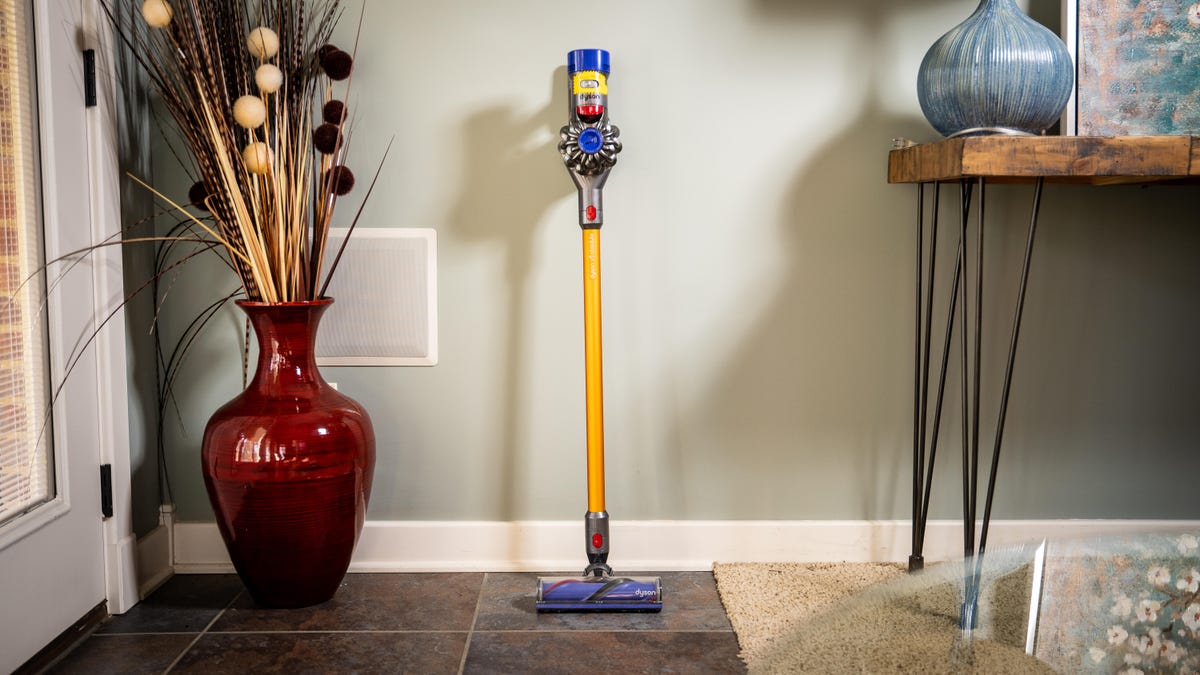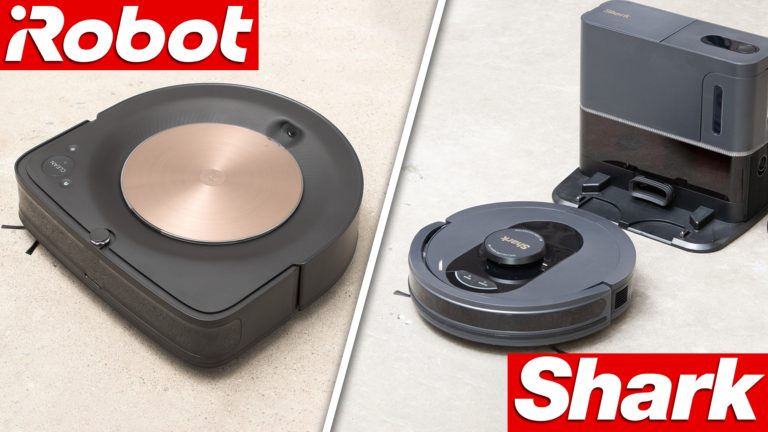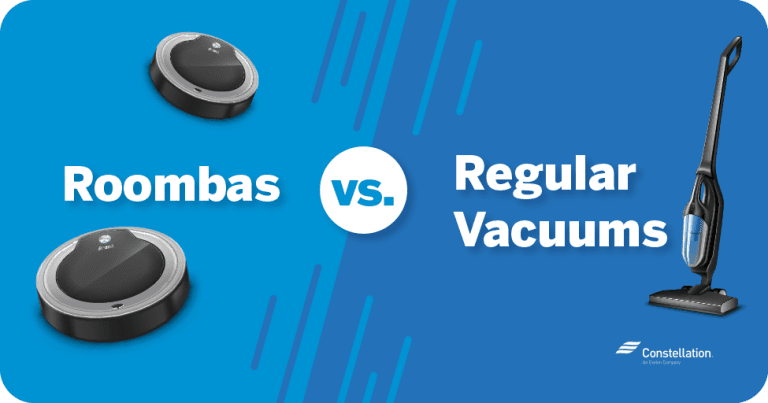Cordless Vs Robot Vacuum

Cordless vacuums offer portability and convenience, while robot vacuums provide automated cleaning with minimal intervention. Choosing between them depends on your specific cleaning needs and lifestyle preferences.
Vacuuming has evolved from manual, cumbersome machines to the sleek convenience of cordless options and the cutting-edge technology of robot vacuums. Cordless vacuums are highly appreciated for their flexibility, allowing users to move freely without the constraints of a power cord.
On the flip side, robot vacuums have become game-changers in home maintenance, offering automated cleaning sessions that can be scheduled at any time, making them the ultimate time-savers. These advancements cater to a variety of household dynamics, ensuring there is a vacuum out there to fit any cleaning routine.
Both types embrace the modern quest for efficient, time-saving devices that cater to the fast-paced lifestyle of today’s users. As cleanliness and ease continue to dominate consumer preferences, the debate between cordless and robot vacuums becomes increasingly relevant.

Credit: www.gizbot.com
Introduction To Vacuum Evolution
The shift from old vacuum cleaners to new ones is interesting. Traditional vacuums had cords and bags. They were bulky and noisy. Enter cordless vacuums – they’re light and easy to carry. No cord means you can move freely. But, they need charging. They might not clean for long. Still, they’re good for quick clean-ups.
Robot vacuums changed cleaning a lot. They can move around on their own. Some can even map your home. They work while you do other things. They’re smart and very handy. But, they can be pricey. And they might miss spots traditional vacuums won’t.

Credit: www.youtube.com
Comparative Analysis Of Cordless And Robot Vacuums
Cordless vacuums are praised for their portability and lightweight design. They make it simple to clean stairs, cars, and furniture. Yet, their suction might be less powerful compared to robot vacuums. Robot vacuums impress with their automated cleaning paths and smart technology. They easily tackle pet hair and dirt on floors.
For those seeking hands-free operation, robot vacuums are a top choice. They can clean your home while you’re away. In contrast, cordless vacuums need you to guide them. This is key for quick spills and targeted cleaning.
Both types have rechargeable batteries. Robot vacuums often return to their docks when power is low. Cordless vacuums may offer less run time per charge. This affects how much you can clean before recharging.
Maintenance for cordless and robot vacuums involves filter cleaning and bin emptying. Good maintenance ensures a long vacuum lifespan. Robot vacuums may need more tech troubleshooting.
Smart features vary by model and brand. Some have home mapping and voice control. Others have advanced sensors to avoid obstacles. Compare features to match your lifestyle and cleaning needs.
User Experience And Practical Considerations
Cordless vacuums offer flexibility and ease of movement around the home. Smaller homes with less floor area benefit from portability and quick clean-ups. For larger homes, robot vacuums simplify the cleaning process by automatically covering more ground. Both types work on various floorings, from hard floors to carpets.
Pet owners may lean towards vacuums with strong suction and specialized brushes to tackle hair. Those with allergies should consider units with HEPA filters to trap allergens.
Smart homes benefit from robot vacuums that seamlessly integrate with home automation systems—scheduling and controlling them via smartphone adds convenience.
Price points vary widely—cordless options can be more budget-friendly, while robot vacuums represent a higher initial investment. However, the latter may offer savings in time and effort over the long term. A thorough cost-benefit analysis is crucial before making a decision.
User reviews provide insights into real-life usage. Positive feedback often highlights ease of use and performance, while criticisms can flag up potential issues or limitations.

Credit: thamtus.com
Future Trends
Choosing between cordless and robot vacuums depends on your needs. Cordless vacuums offer flexibility and immediateness. Robot vacuums provide convenience and hands-free operation. Think about your home’s size and your daily routine before deciding.
Vacuums have environmental effects worth noting. Both types need electricity and batteries. Energy efficiency and battery life are key points. Proper disposal of batteries reduces environmental harm.
Technology never stops advancing. Look for smarter sensors and AI integration in future vacuums. These features will allow better navigation and customization. More sustainable materials might also emerge. We might see vacuums that are more efficient and eco-friendly.
Companies watch what we like and need. Buyer choices shape new products. If we prefer eco-friendly options, companies will make more. Our demand for ease and performance will push for innovative solutions. User feedback leads to improvements in the market.
Frequently Asked Questions For Cordless Vs Robot Vacuum
Is Robot Vacuum Better Than Cordless Vacuum?
Robot vacuums offer automated convenience and can clean under furniture, while cordless vacuums provide powerful suction and manual control for spot cleaning. Each has unique benefits depending on your cleaning needs.
Which Is Better Robot Vacuum Or Regular Vacuum?
The choice between a robot vacuum and a regular vacuum depends on convenience and cleaning needs. Robot vacuums offer automated, hassle-free cleaning, ideal for maintenance. Regular vacuums provide more power and control, making them better for deep cleans.
What Are The Disadvantages Of Robot Vacuums?
Robot vacuums can struggle with obstacles, have limited battery life, may miss spots, and often require regular maintenance. They also tend to be less effective on thick carpets and can be noisy, which may disrupt some households.
What Are The Disadvantages Of A Cordless Vacuum Cleaner?
Cordless vacuum cleaners often have limited battery life and reduced suction power compared to corded models. They require regular recharging and may have a higher initial cost. The need for battery replacements over time can also be a disadvantage.
Conclusion
Deciding between cordless and robot vacuums depends heavily on your lifestyle and cleaning needs. Cordless models offer flexibility and manual control, while robots deliver convenience and hands-off operation. Assess your home’s layout, clean-up routine, and prioritize either active engagement or automated ease.




